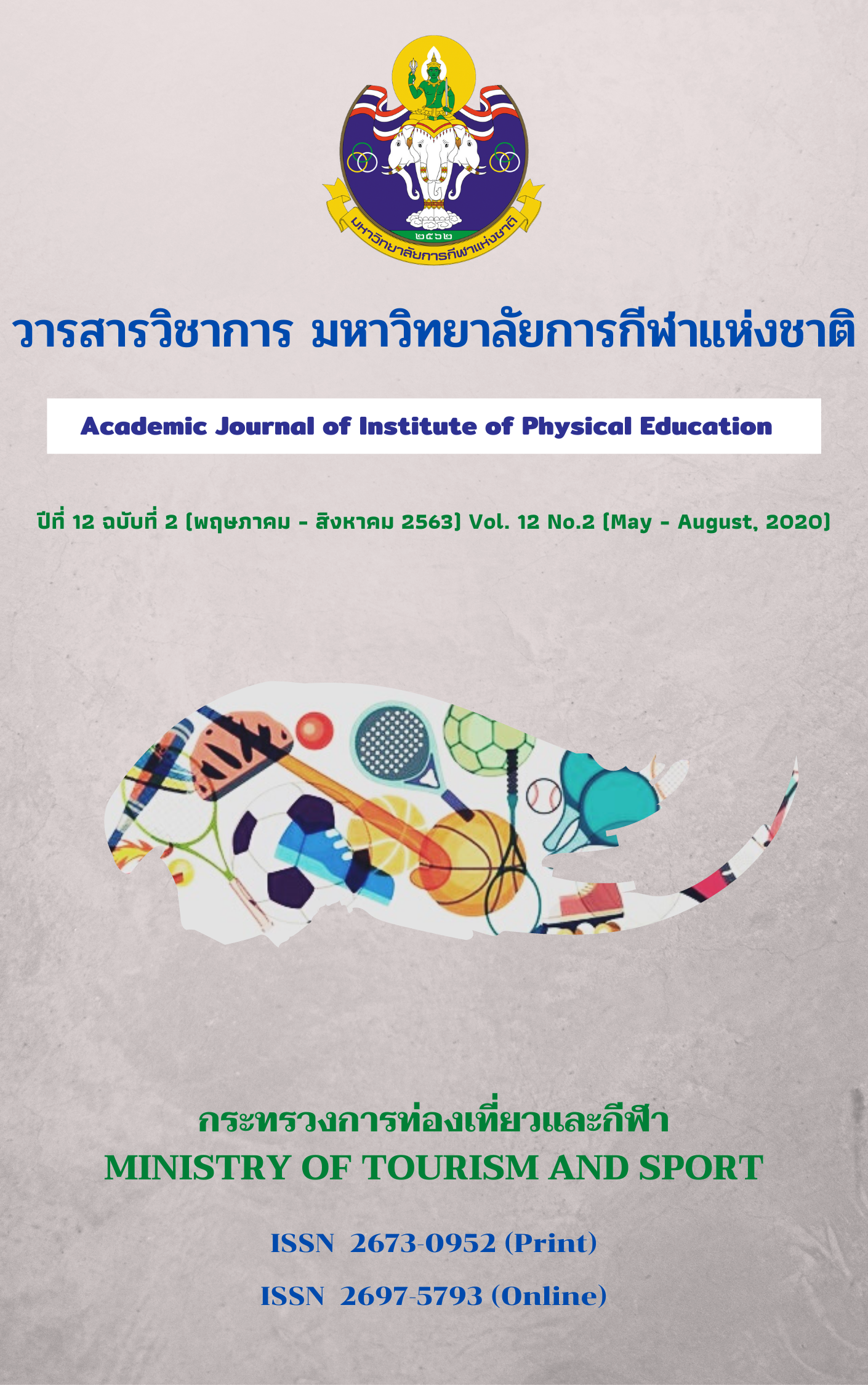THE POTENTIAL OF THE ECOLOGICAL HOTEL IN KOH CHANG
Main Article Content
Abstract
The research “The Potential of The Ecological Hotel in Koh Chang” aimed to: 1) study the attitude and the knowledge on the ecological hotel of the hotel management and hotel staff in Koh Chang, 2) survey the assessment criteria of the ecological hotel, ) analyze the potential of the ecological hotel in Koh Chang. This study was conducted in a qualitative research method. The structured interview was conducted to 20 hotel managers and 20 hotel staffs with the content analysis as the qualitative study.
The interview data indicated 1) The positive attitude and the knowledge were found in the ecological hotel of the hotel management and hotel staff in Koh Chang. 2) The assessment criteria of the ecological hotel were the environmental management, the human resource, the staff participation and the hotel management. 3) There were two environmental management challenges in Koh Chang, firstly the waste management, the garbage in the sea and lack of the properly waste separation, and secondly, there was not enough fresh water during summer in the high-season for tourism in Koh Chang. There were only the community water supply system and the underground water supply system in Koh Chang, but not enough in 4-5 star hotels. They need to buy fresh water to supply for the hotel business. 4) The analysis for the potential of the ecological hotel in Koh Chang based on the criteria of the “Green Hotel” , the” Green Leaf Hotel” and the concept of “7 Green”, displayed that the 2-3 star hotels were more successful to manage the ecological hotel while the 4-5 star hotels faced the challenge of waste management and fresh water management. In the human resource management, the small hotels had less headcount with the closer line of management. The type of hotel management for mostly 2-3 star hotels was the own-management by the hotel owner.
Article Details
The published article is a copyright of the Academic Journal of Thailand National Sports University. The passage appeared in each article in this academic journal is a perspective of each author which is not related to the journal. Each author is required to be responsible for all components of his/her own article. If there are any mistakes, each author must be responsible for those mistakes on his/her own.
References
Amazing Thai Tech. (2018). Thai tourism situation. Retrieved September 20, 2018, from https:thai.tourismthailand.org
Chalermkiat Hansararoonroj and Krirk Ratthanawong Uthai. (2016). Study of guidelines Manage building resources according to the green office assessment criteria, Rajamangala University of Technology Rattanakosin.
Kasikorn Research Center, 2017. Thai tourism situation. Retrieved September 28, 2018, from https://www.kasikornresearch.com/.
Masau, and Prideaux. (2007). Sustainable tourism: A role for Kenya’s hotel industry. Current Issues in Tourism, 6(3), 197-208.
Ministry of Tourism and Sports. (2017). Tourism Economic Report No. 2. Retrieved September 3, 2018, from www.most.go.th
Supang Chantawanich. (2010). Analysis of qualitative research. Chulalongkorn University Publishing House.
Thanawan Mongkhon and Yupawan Vannawanit (2015). Customer attitude that affects the intention to stay and use the services of the Green Hotel, Journal of Dusit Thani College, 9(1), 37-49.


